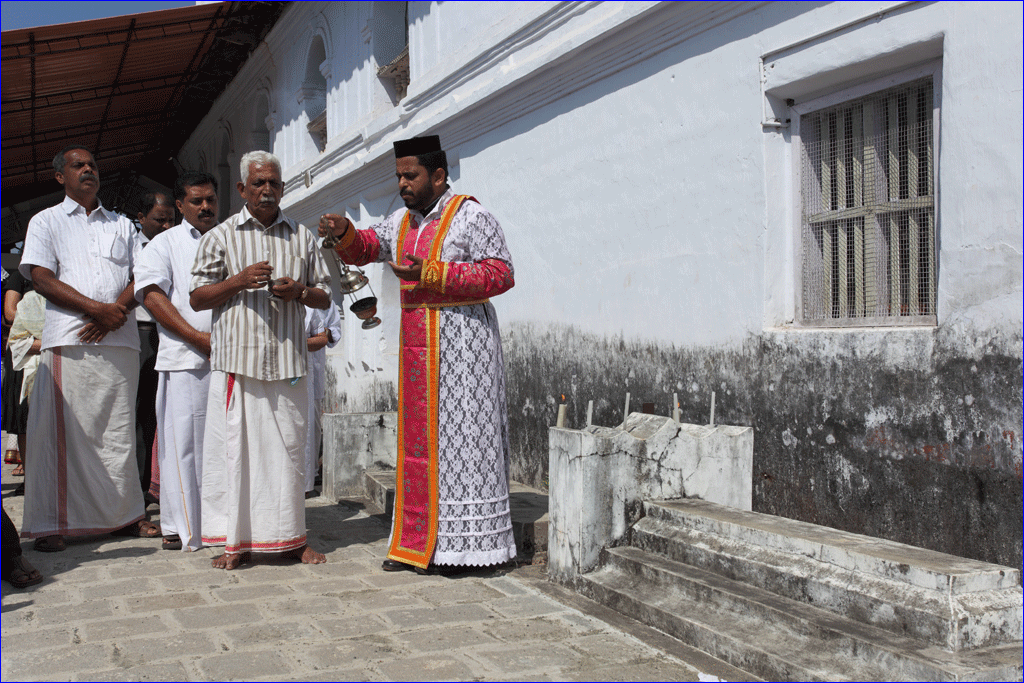


Well, the term 'Syrian' might have left a bunch of you puzzled. But, as a matter of fact, the community has little to do with Syria. In fact, it is believed that when the Dutch first landed in Kerala, the Christians that they crossed paths with were labelled as Syrian Christians, a reference to their connection with the [Assyrian] Church of the East or East Syriac Church. The name also owes its origins to the Syriac liturgy used in church services since the early days of Christianity. Often referred to as Saint Thomas Christians and even Nasranis, the origins of the Syrian Christian community can be traced back to the arrival of St Thomas, one of the 12 apostles, on the Malabar coast in 52 CE.
Related: Assyrians: Frequently Asked Questions
The Nasranis were first welcomed by the local Malabar Christians as the countrymen of Jesus and Saint Thomas. Further divided into four sects--the Knanaya Christians, Jacobites, Marthomites and Syrian Catholics, today the Syrian Christians account for the bulk of Kerala's Christians. Many believe that the community has a lot in common with the Namboothiris. According to Christian commentators, St Thomas converted a number of Namboothiri families upon his arrival in Kerala and many Christians today are of Namboothiri ancestry.
Apart from their tumultuous history and disputed origins, what intrigued our curiosity are the unique customs and traditions of the community. In addition to observing Lent, a period of penitential preparation before Easter, the community is known for the Holy Qurbana, the ritual service with prayers recited in Malayalam and Syric. A strictly endogamous sect, the Nasaranis follow the traditional matriarchal lineage prevalent in Kerala.
While the history of the community is rich and storied, not much is known about the cuisine. Borrowing heavily from Portuguese culinary traditions, Syrian Christian cuisine still retains many of its Hindu roots. Most of the dishes are coconut-based like the istew and appam. Stew or what is colloquially known as istew is a rich chicken dish with a coconut-milk base, seasoned with local spices like ginger, curry leaves, pepper and turmeric. Beef cutlets with sallas is also a signature Syrian Christian dish. Served as the first course of a Syrian Christian meal, sallas is essentially a salad made of finely cut onions, green chillies and vinegar. The quintessential breakfast spread also consists of appams accompanied with chicken stew, kadala curry (chickpea curry) and fish molee. The Portuguese influence on the cuisine is evident in the mappas and vindaloo. The fish mappas, a preparation made using mustard seeds, curry leaves, coriander and coconut milk, features as a popular delicacy during special occasions like baptism. The one-pot meal has also been a staple mainstream food for the Nasrani community, with kozhi pidi (chicken with rice dumplings) being a crowd favourite. A number of fish items are also savoured by the Christian community throughout the year including karimeen pollichathu (pearlspot in banana leaves) and meen vevichathu (Kottayam-style fish curry).
From meen molee to duck curries and beef ularthiyathu, the Syrian Christian cuisine has some of the most delectable culinary gems in India. We don't know about you but it sure does tick all the right boxes for us!

or register to post a comment.